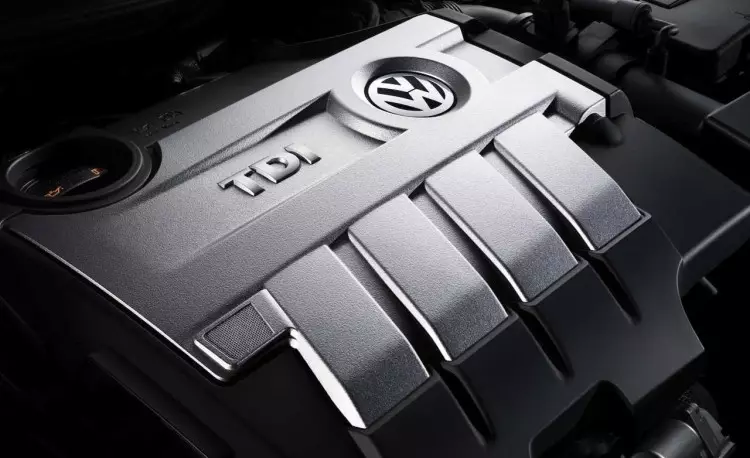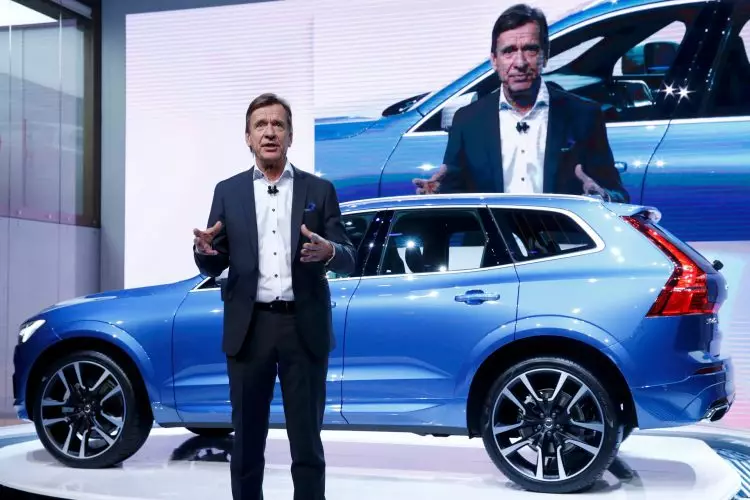The future of the Diesels is shrouded in a dark cloud – any resemblance to reality is purely coincidental. It is not the qualities of these engines that are at stake, but their ability to meet environmental standards at a controlled cost in the future.
Statements by Sergio Marchionne from FCA and Håkan Samuelsson from Volvo, recorded last week at the Geneva Motor Show, provide important indications in this direction.
Marchionne, executive director of FCA, cuts to the chase:
“There are very few things that are certain in this market, except for one: small-capacity diesels are finished. I think everything else is fair game, so let's give it a try.”
Just recently here at Razão Automóvel we reported that the successor to the Fiat 500 will be a hybrid. Which means the overhaul of the small 1.3 Multijet engine. In other words, not only the future Fiat 500, but also the successor of the Fiat Panda, will have to abandon diesel engines in favor of semi-hybrid systems based on the new 48-volt systems.

Marchionne continued, justifying the main reason behind this shift: "The issue is not about the technology, but about the customer's ability to pay for it."
But why has the cost of Diesel technology gone up so much?
Why diesels have become so expensive reflects the current and future regulatory environment. Dieselgate ended up exposing the shortcomings of the homologation tests and the excessively permissive NOx levels.
Although – truth be told – behind the scenes of the automotive industry it was already known that it was a matter of time before the new average emission targets (95 g/km CO2), emission standards (Euro 6c) and approval tests were introduced ( WLTP and RDE). Dieselgate has only put pressure on European bodies to move towards this new regulatory framework more quickly.
"As for Diesel engines, as we can already see, today models in the A segment (city dwellers) with this type of engine are rare."
On the brand side, the stricter regulations force large investments in the development of technologies to control emissions. On the consumer side, it translates into a higher bill when purchasing the car.
In the case of diesel, exhaust gas treatment systems have led to the widespread adoption of particulate filters and, more recently, SCR (selective catalytic reduction) systems. All this to significantly reduce NOx emissions.

Predictably, the cost of diesel engines compared to Otto (gasoline) engines skyrocket. And the cost will continue to increase to the point where it becomes unjustifiable to choose a diesel over a gasoline engine.
These costs, when applied to cars from lower segments (city and utility vehicles) imply unaffordable price increases for the consumer. Other alternatives have to be considered, and as such the hybrid option gains relevance.
NOT TO BE MISSED: If you're not pulling your diesel engine then you should…
One way or another, the partial electrification of the automobile will be a common reality in the next decade. The number of micro-hybrid and semi-hybrid proposals is expected to grow exponentially. It will be the only way to meet the required 95 g/km of CO2. Håkan Samuelsson, CEO of Volvo, elaborated on this scenario in Geneva:
“Europe had legislation that allowed high levels of NOx in diesel engines, but it's safe to say those days are over. We will have to make diesel engines with the same NOx levels as a gasoline engine and, although it is possible to do so, it will be more expensive, which is why in the long run it is a negative thing.”

In the short term, Volvo's CEO concedes that Diesel will be essential to reach 95 g/km CO2:
[…] until 2020 Diesel will continue to play a very important role. After that date, the twin engine (hybrid) and all electric cars will be more cost-effective, and when the requirements drop from 95 g/km, I'm pretty sure the diesel engine won't be able to help us.
Volvo is preparing to introduce its first electric car on the market in 2019 and by 2025 all the Swedish brand's ranges are expected to have a zero-emissions variant.
As for Diesel engines, as we can already see, models in the A segment (city dwellers) with this type of engine are rare today. In the segment above (utilities) should start to reduce substantially, as new generations of models are introduced. On the other hand, we should see the profusion of proposals with different levels of hybridization.
We don't know what the future holds, but when it comes to Diesel engines there is no doubt (at least in the lower segments): the Diesels even have their days numbered.
